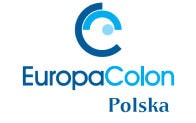The Immunoscore as a Prognostic Marker for Patients With a Colorectal Cancer
NCT01688232
Observational
Unknown status
IMMUCOL
Medical and Scientific Background: Colorectal cancers (CRC) are the leading cancers in both genders. This cancer is of prognostic severity. The prognosis of this cancer has not been significantly improved. The treatment of colonic cancer is primarily based on surgery. Adjuvant chemotherapy is proposed for metastatic cancers (stages III and IV). However nearly 30% of patients with localized cancer (stage II) will present a recurrence. Despite intense research efforts, no markers of sufficient prognostic value (independent of TNM) are available to identify this group of patients and justify intensified therapy. The natural history of cancer involves interactions between the tumor and the immune system of the host. The immune infiltration at the tumor site may be indicative of host response. We showed that the density of intratumor memory T cells (CD45RO) and cytotoxic T cells (CD8) in tumor regions (the core and the invasive margin) influenced the occurrence of early events of metastasis (tumor emboli) and was strongly associated with prognosis of patients with CRC (Pagès et al, NEJM-2005). This immune criterion was a better predictor of survival than the "gold standard" histoprognostic data of tumor invasion (T stage and N) and allowed to identify a group of patients at high risk of recurrence (*2). The availability of this immune criterion in clinical practice could improve the prognostic assessment of patients and better guide the therapeutic. A dedicated platform has been implemented in our hospital to speed up the transfer of this immune investigation into the clinic. The investigation takes into account the density of immune cell populations in tumor regions (the core and the invasive front of the tumor). This methodology has been validated for the markers CD45RO, CD3 and CD8 and leads to the creation of an immune score ("immunoscore" ranging from IO to I4). We validated the prognostic impact of the immunoscore in a retrospective series of 250 colorectal cancers. The main objective of this multicentric prospective clinical study is to assess in clinical practice the "immunoscore" and measure its prognostic value. The cohort study will include 400 patients with CRC stage I to IV (6 centers for inclusion; Paris-HEGP, Dijon, Bobigny-Avicenne, Besancon, Poitiers, Rouen). Two years of inclusion and a follow-up of 3 years for each patient will be performed (co-financing for data collection during the 4th and 5th year planned). For each patient, the pathologist of the center will send to the immunomonitoring platform of HEGP tissue sections from a paraffin block containing the tumor regions. The investigations will combine a step of immunostaining for CD3, CD8, and CD45RO (Ventana automate) markers, high-resolution scanning of the stained slides and quantification of digital images by an imaging module developed by our group from the program of Developer XD of Définiens company. The immunoscore will be calculated and the score will be correlated to the clinical data for the relapse and the survival. The secondary objective of this program is to evaluate the prognostic performance of the immune infiltrate on the biopsies performed for diagnostic purposes. This study will be conducted on patients of the cohort whose biopsies were performed in the same hospital than surgery and whose samples are available in pathology laboratories involved (representing 50% of cases). For the same patients will be conducted a genetic investigation of the tumor to assess the MSI status, the presence of a K-Ras and BRAF mutations. This investigation will be performed on tumor sections from the same tumor block selected for the immunohistochemical analyses. The sections will be processed by the Department of Biology, Hôpital Européen Georges Pompidou. The prognostic performance of the immune investigations performed on tumor sections and biopsies will be compared to that of genetic features of the tumor. Finally, a questionnaire will be sent every six months along the monitoring of the patients to obtain information concerning (i) the emergence of an immune disorder (such as allergy, autoimmunity, inflammatory process) and (ii) the psychological status of the patients. The potential impact of such parameters during the course of the disease on the prediction of the relapse and survival obtained with the immunoscore performed at the time of surgery will be evaluated. Expected results : This prospective study is an indispensable step for the clinical validation of the prognostic value of the immunoscore. The secondary objectives should help to precise the benefit of a concomitant analysis of the biopsy, the genetic features of the tumor. The questionnaire should help to identify the clinical parameters to track along the monitoring
Sep 27,2012
All
18 Years
N/A
18 Years
N/A
459

